Portraits of despair: Opioids land more women behind bars
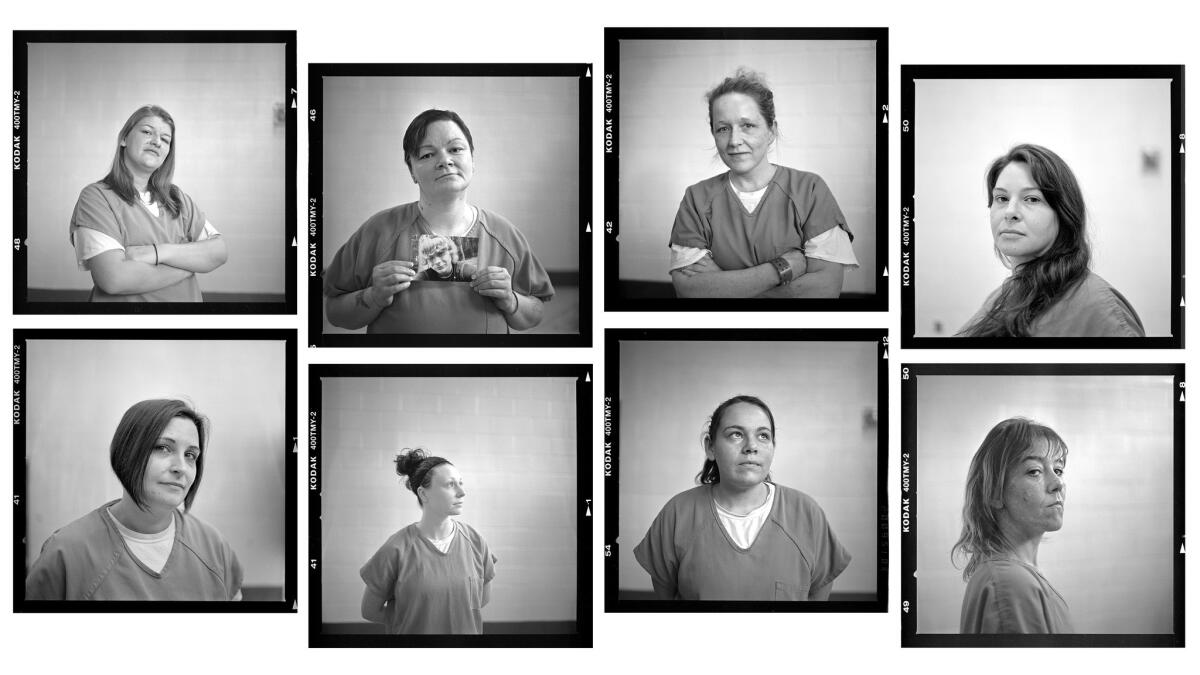
In America’s ongoing battle against addiction, Tennessee’s Campbell County faces formidable odds. In 2015, it had the third-highest amount of opioids prescribed per person of all U.S. counties. The numbers identified by the Centers for Disease Control and Prevention were more than five times the national average — or enough opioids to medicate every single resident here around-the-clock for 15 weeks.
One lone county jail in a remote corner of Appalachia offers an agonizing glimpse into how the tidal wave of opioids and methamphetamines has ravaged America. Here and in countless other places, addiction is driving skyrocketing rates of incarcerated women, tearing apart families while squeezing communities that lack money, treatment programs and permanent solutions to close the revolving door.
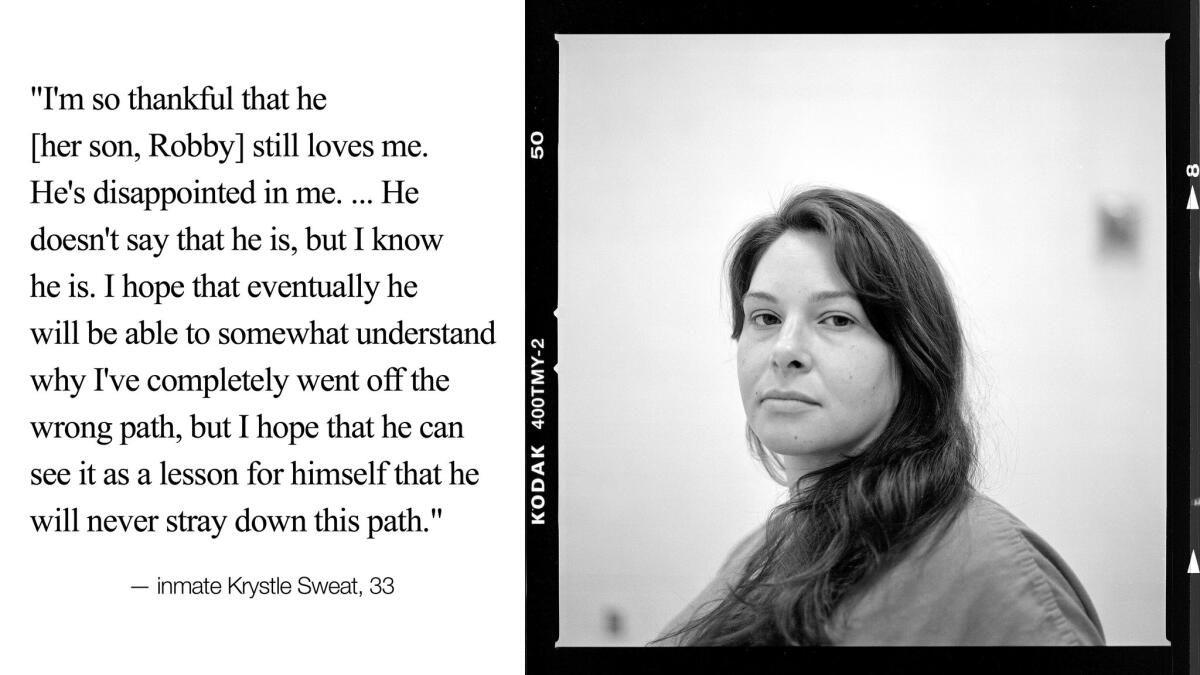
More than a decade ago, there were rarely more than 10 women in the Campbell County Jail. Now, the population is routinely around 60. Most who end up here have followed a similar path to Sweat: They’re arrested on a drug-related charge and confined to a cell 23 hours a day. Many of their bunkmates also are addicts. They receive no counseling. Then weeks, months or years later, they’re released into the same community where friends — and in some cases, family — are using drugs. Soon they are again too.
And the cycle begins anew: another arrest, another booking photo, another pink uniform and off to a cell to simmer in regret and despair.
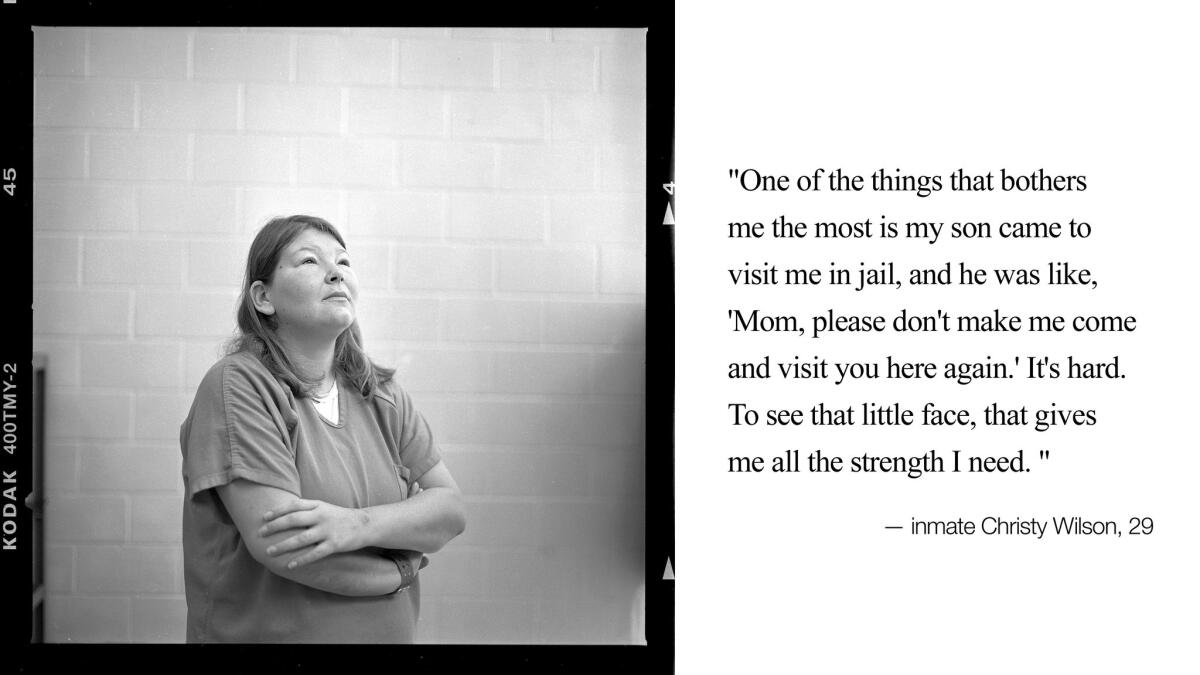
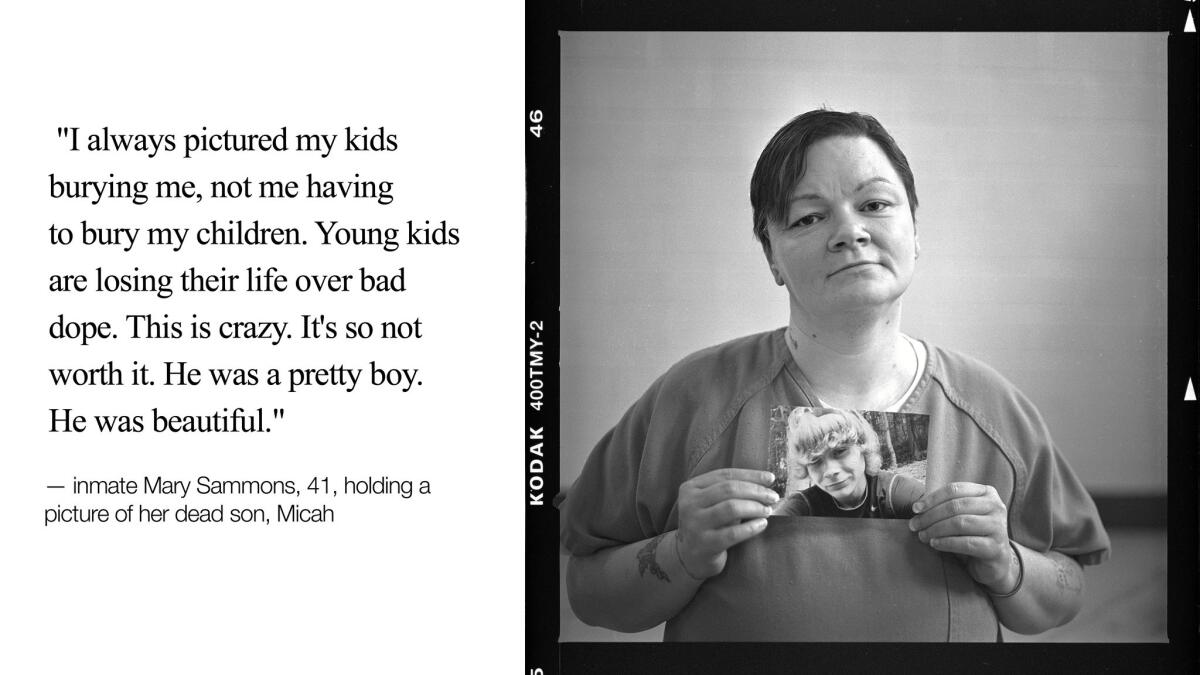
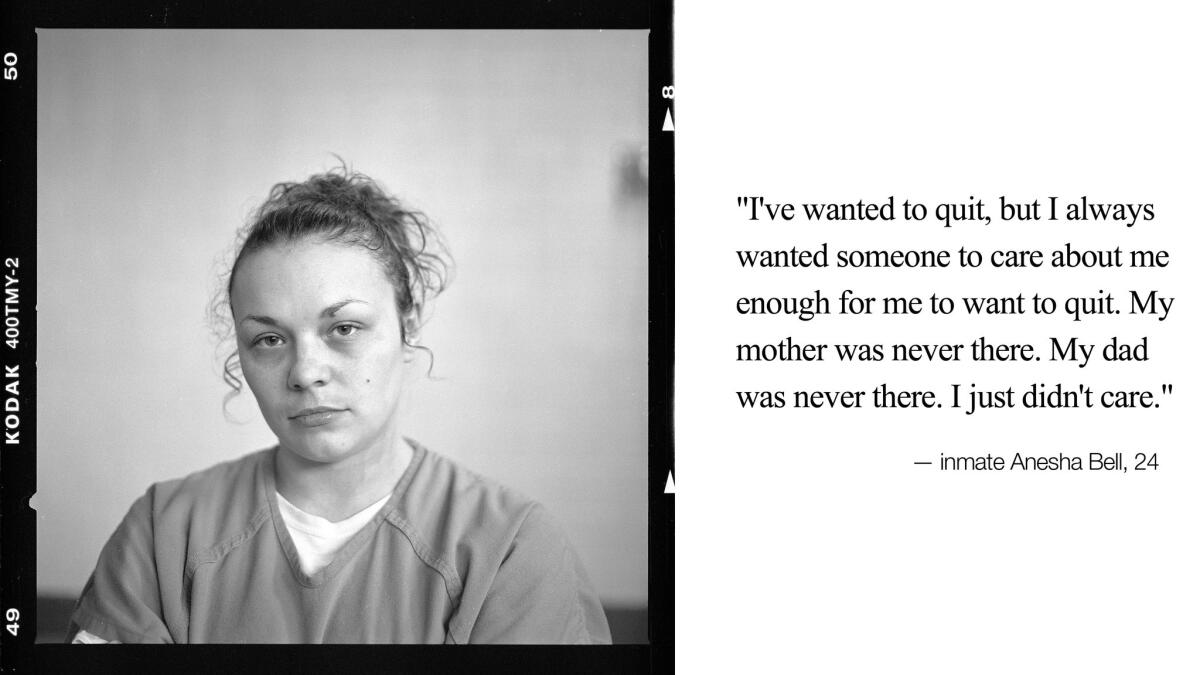

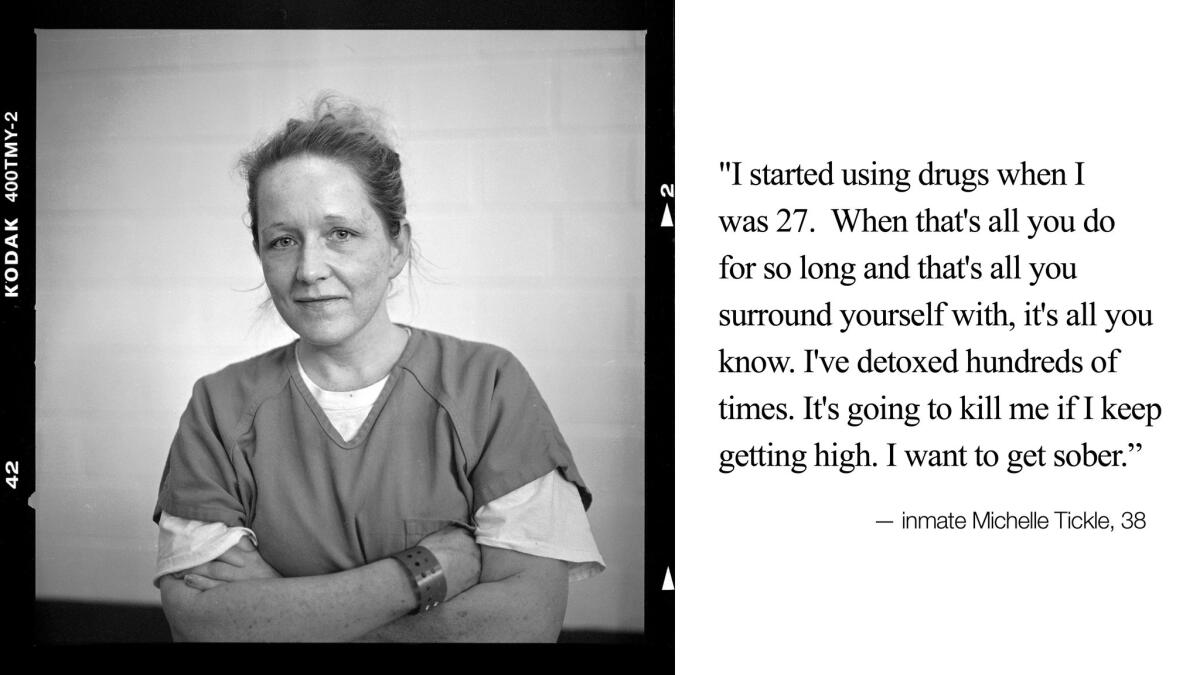
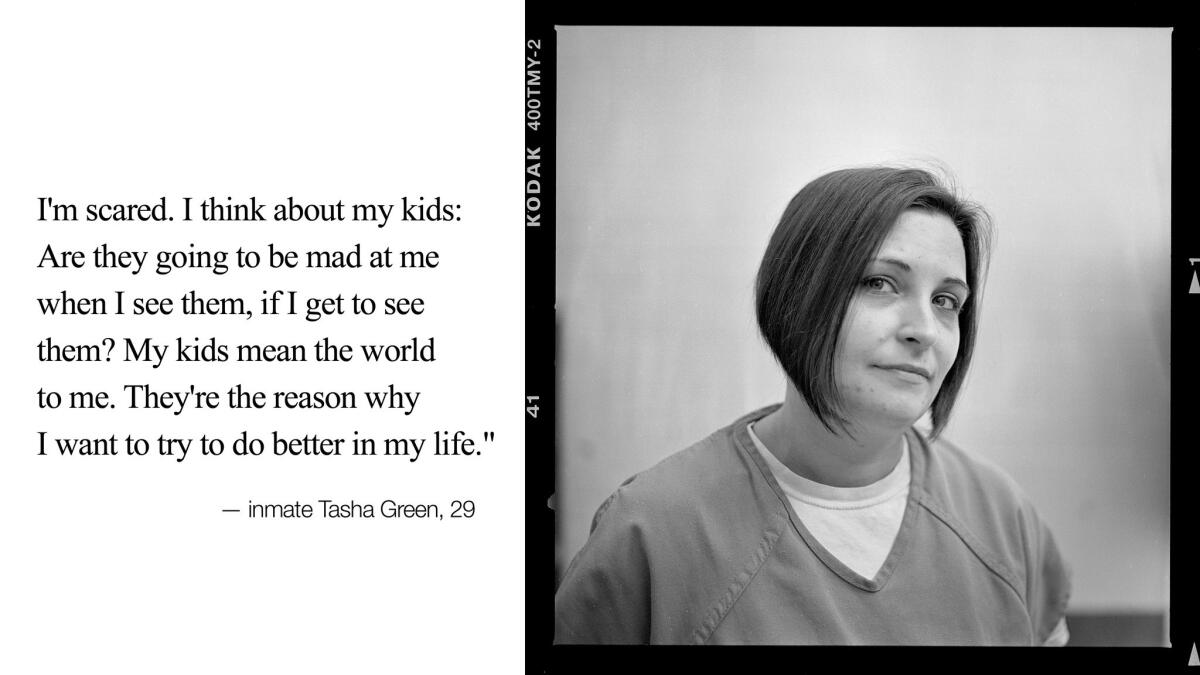
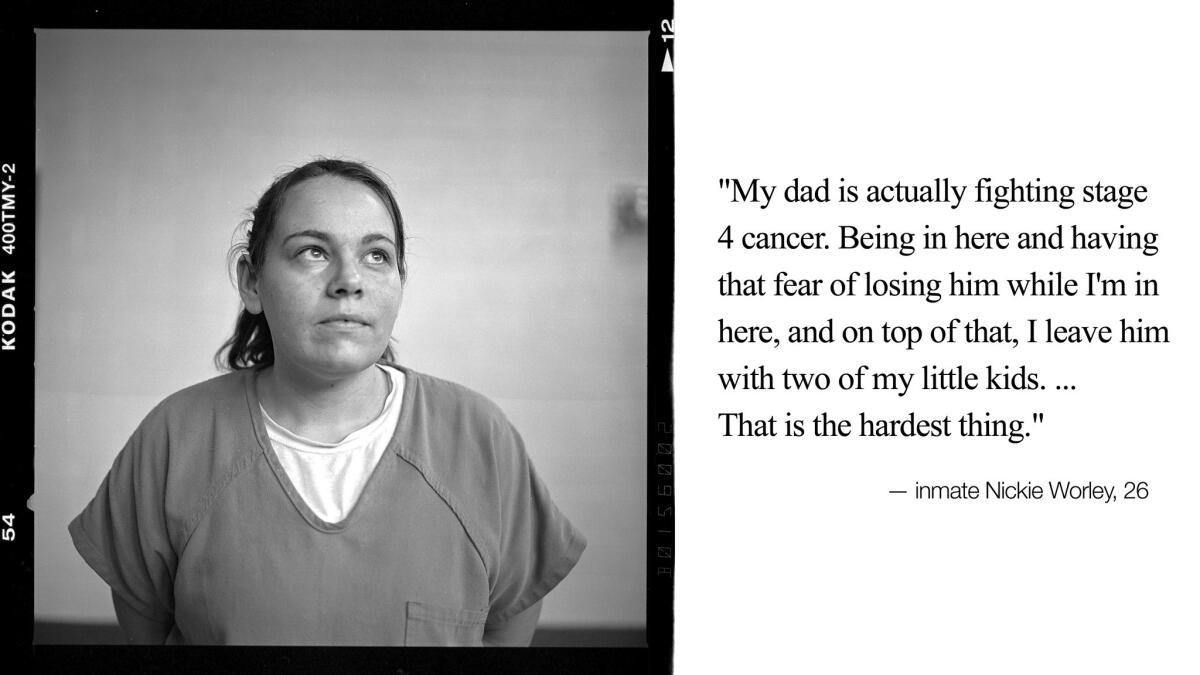
Women in jail are the fastest-growing correctional population in America. Their numbers rose from 13,258 in 1980 to 102,300 in 2016, with the biggest jump in smaller counties, according to the Bureau of Justice Statistics. Similarly, the female prison population skyrocketed from 5,600 in 1970 to more than 110,000 in 2016. Between 1980 and 2009, the arrest rate for drug possession or use tripled for women, while it doubled for men.